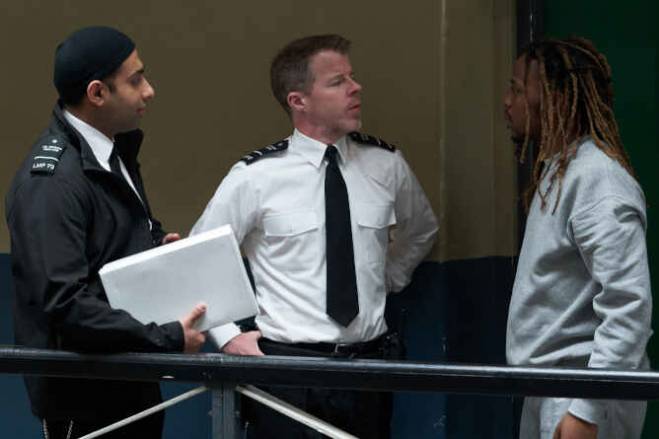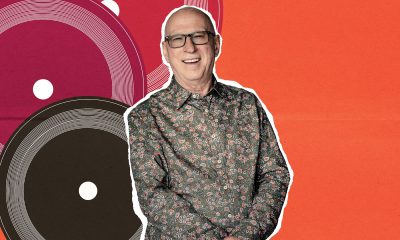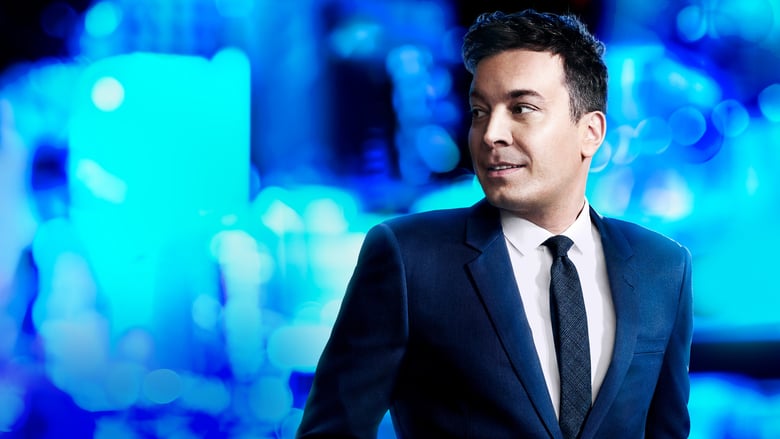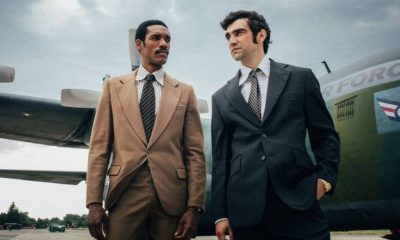Interviews
Screw | Interview with Faraz Ayub (Ali Shah)

Faraz Ayub (Ali), Stephen Wight (Gary)
What was the appeal of Screw?
Rob [Williams, creator] sent a statement over describing how he wanted this show to be about character. I feel like a lot of TV today is about action or plot over character, so the chance to dig into a character was really attractive.
Ali drives a nice sportscar as well – that must have had something to do with it…Oh, of course, although I didn’t get a chance to drive it or anything. No supercar for me! Maybe series two?
How would you describe Ali?
He likes to see the good in everyone and everything. That makes him a bit naive sometimes, because it extends to the prisoners as well. He’s a loyal, decent person, he’s honest and gets along with everyone.
Is he too good a guy for that for that world?
I don’t know, maybe. The great thing about the show is, we show the humanity and the good in that world, something we don’t often get to see.
Does he lock horns with anyone on the staff?
No, he’s everyone’s friend. There are intense moments – it’s a prison! – but it’s nice to play a good guy.
Why did Ali become a prison officer?
I think he’s still searching for his thing, and this is one of his pitstops. He is from an environment not too dissimilar to a lot of the prisoners and probably sees them in a different light to some of the other officers. When he goes into prison, he just sees some of the people he may have grown up with but who took the wrong path in life. Ali feels that he can do some good, help some of these guys and show them that there are alternatives, giving them some sort of nudge in the right direction.
Which aspects of him could you relate to?
I’m from an inner-city environment where you do see people going down the wrong path in life. My parents, family and friends always nudged me in the right direction, so I had role models within my own circle. I also try to see the good in people and not be too judgmental.
What was your understanding of prison life and how did it evolve over the over the process of playing Ali?
My perception of prison before was that it was a place that you want to avoid, obviously! We could never accurately portray what prison is really like, just come close to it. It’s not something that I’d thought about, to be honest.
What insights did speaking to real-life prison officers give you into the part?
Psychologically it was really helpful: how they deal with life in prison, the lack of social life and how prison becomes your life. You have to have empathy, even for people who’ve committed heinous acts. Some of the prison officers told us about working with murderers and rapists, but they still had to show a sense of humanity to these people. You have to treat everyone within that environment as a human being and not judge them. We don’t really recognise prison officers the way we do police officers or firefighters or soldiers, but these guys risk their lives to keep us safe as well. They’re very underappreciated.
Do you think you’d have any of the tools to do that job?
I don’t think so. I think I’m too impatient and I couldn’t deal with that environment because it becomes your life. It’s not something you go into light-heartedly, It’s your responsibility to deal with vulnerable people who often have all sorts of serious mental-health issues.
How did the set help you with playing Ali?
It takes you into that world and helps you to portray that character authentically, that claustrophobic experience that it must be for people in real life.
What was the biggest challenge of working on the series?
You have to give a lot in the role, in that world, but I think the audience will feel that. I hope they’re drawn in and feel how we felt in our environment, hopefully experiencing prison life as close as you can to the real thing.
















































